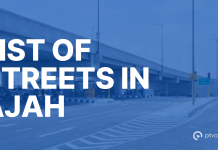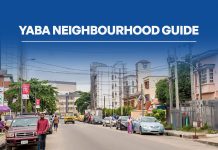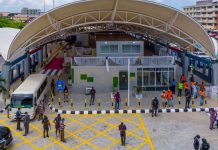Nestled along the banks of the majestic Niger River, Asaba, the capital city of Delta State in Nigeria, is a city with a unique blend of rich history, vibrant culture, and a burgeoning economy. Asaba’s charm lies not only in its warm hospitality but also in the diverse neighborhoods that make up this thriving metropolis.
Whether you’re a newcomer to Asaba or a long-time resident looking to explore new horizons, finding the perfect neighborhood to call home is a crucial decision. From serene residential areas to bustling commercial hubs, Asaba offers a plethora of options to suit various preferences and lifestyles.
Join us on a virtual tour as we unveil the best areas to live in Asaba, each with its own distinctive character and allure. From the leafy suburbs to the dynamic urban centers, Asaba has something for everyone. Let’s dive into the heart of this vibrant city and discover the hidden gems that make Asaba a truly special place to live.
Best Areas to Live in Asaba
Find Houses to Live in Asaba Here.
1. Ibusa:
Nestled on the Anioma plateau along the banks of the majestic River Niger, Ibusa is a city that seamlessly intertwines history, culture, and natural beauty. Founded around 1400 AD by Olomu warriors from the Ijesha tribe, Ibusa boasts a rich heritage. The city is not only known for its historical sites, such as the Oke-Ona Ogbu shrine dating back to 1750 AD but also for its delicious traditional foods like Agidi and Anguru made from yam flour. Ibusa comes alive during festivals like the Akuo festival in March/April, May Day celebration, Okpu Festival in August, and the Egbara Festival in October, offering residents a vibrant cultural experience.
2. Issele Azagba:
Situated in southern Nigeria on the Atlantic Ocean coast, Issele Azagba is a city that seamlessly blends affordability, pleasant weather, and ample entertainment options. With a population of approximately 941,879 people, Issele Azagba is the capital of Delta State, offering an array of housing options, from affordable apartments to one-bedroom flats. The city’s moderate temperatures, averaging around 30°C during summer and 26°C during winter, create a comfortable living environment. With numerous entertainment options, museums, and theaters, Issele Azagba stands out as a well-rounded city that caters to various lifestyle preferences.
3. Issele Ukwu:
As one of the oldest towns in Delta State, Issele Ukwu holds a special place in the region’s history and development. Founded around 1650 AD, the town serves as the headquarters of Aniocha South Local Government Area. The history of Issele Ukwu is deeply rooted in the reign of King Oba Nnaji, who played a pivotal role in shaping the cultural identity of the town. Despite the waves of history and the introduction of Christianity during the colonial era, Issele Ukwu has maintained its strong traditional beliefs, making it a unique and culturally rich place to call home.
4. Ibusa Road Estate:
Located in the heart of Asaba, Ibusa Road Estate stands out as one of the most sought-after residential areas. Characterized by scenic beauty with palm-lined roads offering a captivating view of Asaba, this estate is strategically positioned close to essential amenities such as schools, markets, hospitals, and transport hubs. While it may lack extensive entertainment options, its serene environment makes it an ideal choice for those seeking a peaceful haven in close proximity to urban conveniences.
5. Ekumeku Layout, Emeka Ofor Layout:
As a major residential area in Asaba, Ekumeku Layout and Emeka Ofor Layout offer a balance between exclusivity and affordability. Situated within the vicinity of Asaba Housing Estate, these layouts provide a diverse range of housing options, catering to varying budget constraints. With exceptional social amenities and a convenient location, residents can enjoy a comfortable lifestyle while being in close proximity to the heart of Asaba. These layouts represent the epitome of well-rounded living, where residents can experience the best of both worlds.
6. Umuagu:
Situated as the 10th most populous suburb in Asaba, Umuagu is a thriving community with approximately 20,000 residents, each contributing to its vibrant atmosphere. Boasting a population diversity that adds to its charm, Umuagu has become a sought-after residential area with over 4,000 housing units. The majority of these homes, around 72%, are occupied by proud homeowners, creating a strong sense of community. However, challenges such as incomplete houses due to the high cost of materials showcase the resilience of Umuagu residents in the face of economic constraints.
7. Umuagu-Eziagulu Otu:
Nestled in the heart of Aniocha South Local Government Area, Umuagu-Eziagulu Otu stands as a testament to bravery and history. With a population exceeding 20,000 residents, this suburban enclave in Asaba holds a pivotal place in Nigeria’s political chronicles. It was from Umuagu-Eziagulu Otu that Chief Okotie Eboh emerged as Governor General after Independence in 1960. This historical significance, coupled with a vibrant community, makes Umuagu-Eziagulu Otu a compelling choice for those seeking a blend of tradition and modern living.
8. Ugwuaji:
Known for its low crime rates and excellent educational institutions, Ugwuaji stands out as a secure and family-friendly neighborhood in Asaba. With a walkability score of 6/10, residents can easily navigate its main road, adorned with a variety of restaurants and shops. Employment opportunities abound, contributing to the neighborhood’s appeal. While public transportation options are somewhat limited, Ugwuaji’s safety rating of 7/10 further solidifies its reputation as a welcoming and secure community.
9. Okpanam:
Steeped in history and strategically located in the Niger Delta’s oil-producing region, Okpanam offers a unique blend of tradition and progress. As the capital of Okpanam Local Government Area, this city has witnessed significant development over the years. Its name, meaning “people who live around a lagoon,” reflects its geographical charm. Okpanam’s rich past, coupled with its modern amenities, makes it an ideal place for those seeking a well-rounded living experience.
10. Ogbe-Ofu:
Positioned approximately 30 minutes away from Asaba’s city center, Ogbe-Ofu strikes a balance between tranquility and accessibility. The abundance of schools, including those affiliated with the nearby University of Calabar, contributes to the community’s vibrancy. With a mix of general and specialist hospitals, as well as a variety of churches, Ogbe-Ofu caters to diverse needs, making it an attractive residential option for families and students alike.
In conclusion, Asaba, the capital city of Delta State, Nigeria, unfolds as a tapestry woven with diverse neighborhoods, each offering a unique blend of history, culture, and modern living.
Choosing the best area to live in Asaba is undoubtedly a subjective endeavor, as each neighborhood caters to different preferences, needs, and lifestyles. Whether you prioritize historical significance, cultural richness, or a modern and convenient lifestyle, Asaba has something to offer.
As we conclude this exploration into Asaba’s best areas to live in, we encourage you to consider your priorities and preferences, allowing them to guide you in finding the neighborhood that resonates most with your lifestyle. In every corner of Asaba, a welcoming community awaits, ready to embrace you as you embark on the journey of making a new place your home.
What is Asaba known for?
Historically, Asaba has served as a bustling entrepôt for palm produce and various agricultural exports transported via the Asaba-Onitsha ferry. Notably, the town has evolved into a pivotal point, marked by the completion of the 4,606-foot (1,404-metre) bridge to Onitsha in 1965, positioning Asaba as its terminus. The town is home to educational institutions such as a teacher-training college and other schools, contributing to its cultural and intellectual vibrancy.
What is the main tribe in Asaba?
The Igbo people constitute the indigenous population of Asaba. Additionally, the city accommodates various original minorities, including the diverse Anioma peoples and individuals from other ethnic groups. Over the years, especially since assuming the role of the administrative capital of Delta State, Asaba has experienced substantial population growth, now surpassing half a million residents.
Does Asaba have a beach?
Asaba boasts the renowned Asaba Beach, a spectacular and prominent coastal destination in the state. This beach, often referred to as the Asaba Beach, stands as a major attraction for both locals and visitors alike. With its scenic beauty and natural allure, the beach has become an ideal spot for leisure and recreation, catering to the preferences of fun-loving individuals seeking a refreshing escape.









